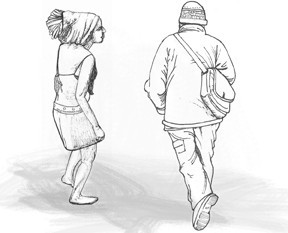An Aquarian exposition
Rethinking the legacy of Woodstock 40 years after
By the time this article makes it to print, the 40th anniversary of Woodstock will have been celebrated with little more than the release of a few CDs and movies. While Woodstock has been a commercial success ever since the festival ended, selling millions of soundtracks, movies and books, the Woodstock festival was never about money and it is saddening to see that is all that it has become.
It is impossible to understate the importance of this event – both symbolically for a generation living through the civil rights movement and fighting against the Vietnam War – and musically. Needless to say, Woodstock launched the careers of several artists and inspired the rock and roll icons of a generation.
The last attempt at recreating Woodstock was 10 years ago, when a 30-year commemoration concert, Woodstock ‘99 was held in Rome, New York on July 23-25, 1999. However, this event was remembered more for embodying everything the original Woodstock was not, instead of as a concert celebrating its founding spirit. Previous concerts under the ‘Woodstock’ banner – held in 1994 and 1979 – also failed to generate any of the same emotion or sentiment as the original. Why is that? Have we lost the ability to come together to celebrate with peace and love? Maybe it’s just that we’ve lost sight of the context in which Woodstock occurred.
During a tumultuous time of war, protests and violence, Woodstock was everything that the world wasn’t. It was the ultimate protest against Vietnam and the American government’s involvement in the war. It was a celebration of art and culture and harmony that allowed the outside world to see that people from vastly diverse backgrounds could come together and peacefully celebrate, all while refusing to be drafted overseas. So what can we take out of this event 40 years later?
With the – at present – scarce media coverage, a person would barely know that two wars are currently taking place involving the United States and one involving our own country. When the war in Iraq first began in the United States, protests erupted around the globe, but since the economic crisis began in 2008, neither war - Iraq or Afghanistan - seem to make the radar anymore. Why are we not protesting? Why do we not join together and celebrate being one people, in one world through music, as they did in 1969? Just as economic factors have taken over the news, they may have also taken over the original spirit of Woodstock.
As an example, Taking Woodstock, Ang Lee’s newest film, is a comically uplifting tribute to Woodstock. It will likely do well at the box office, thus making more money off of this amazing historical event, but was that ever the point? I’m not saying that you should not support the movie or the soundtracks, I have some myself, but it’s the spirit in which Woodstock began that should be celebrated and articulated. I hope this is what we take away from this anniversary: That peace, love and music are able to live on through us, and that such culmination can come together in as unlikely a place as a small dairy farm in Bethel, New York.
Melanie Murchison is a University of Winnipeg student.
Published in Volume 64, Number 1 of The Uniter (September 3, 2009)







